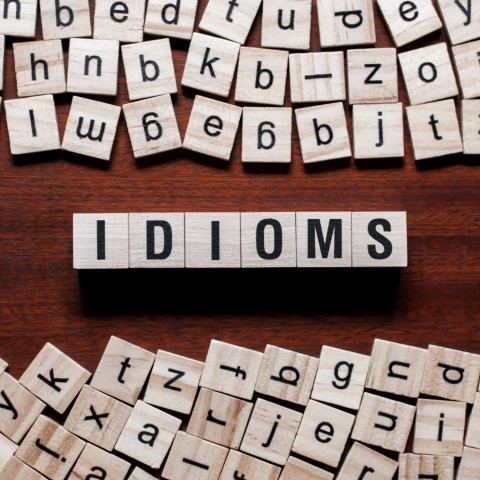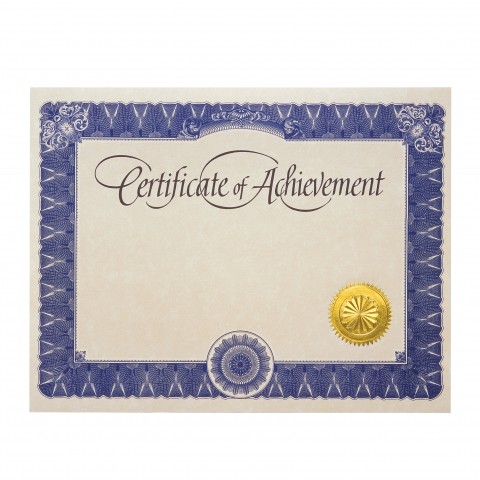
An important step in mastering Polish is learning how to form and use more advanced Polish phrases. Of course, you can learn a lot from various sources as you read, listen to, and speak the language. However, studying a handy list of expressions is a much faster way of improving your language skills.
In this article, we’ll outline a few key categories of advanced Polish vocabulary: academic phrases, words you can use on your resume, smart phrases to use in the business world, advanced conversational phrases in Polish, and idiomatic expressions often used by native speakers. Learning all of this will help your Polish sound much more natural and enable you to make a better impression on people.
 Table of Contents
Table of Contents
- Useful Phrases for Academic Writing
- Power Phrases for Your Resume
- Smart Phrases for Business Meetings
- Advanced Idioms, Sayings, and Proverbs for Everyday Usage
- Final Thoughts
1. Useful Phrases for Academic Writing

Are you thinking about studying in Poland? If so, you’re going to need a specific set of vocabulary in order to sound sophisticated and ace your academic/formal writing. We recommend you start by memorizing the advanced Polish phrases below.
- Po pierwsze… Po drugie… Po trzecie (Firstly… Secondly… Thirdly)
Po pierwsze to ważny temat. Po drugie mało się o nim mówi. Po trzecie to wciąż tabu w naszej kulturze.
Firstly, it’s an important topic. Secondly, it’s not discussed enough. Thirdly, it’s still a taboo in our culture.
- Należy zwrócić uwagę, że… (It’s important to note that…)
Należy zwrócić uwagę, że nie wszyscy Polacy zgadzają się z tą postawą.
It’s important to note that not all Polish people agree with this attitude.
- Jak się okazuje… (As it turns out…)
Jak się okazuje to nie do końca prawda.
As it turns out, it’s not entirely true.
- Zakładając, że (Assuming that…)
Zakładając, że autor ma rację jest to poważny zarzut.
Assuming that the author is right, it’s a serious accusation.
- Według autora… (According to the author…)
Według autora nie jest to najlepsze rozwiązanie.
According to the author, it’s not the best solution.
- Warto podkreślić… (One should emphasize…)
Warto podkreślić, że to tylko teoria.
One should emphasize that it’s only a theory.
- Można powiedzieć, że… (One could say that…)
Można powiedzieć, że ludzie reagują w takich sytuacjach impulsywnie.
One could say that people react impulsively in such situations.
- Nie ulega wątpliwości, że… (Undoubtedly…)
Nie ulega wątpliwości, że to nie jest idealne rozwiązanie.
Undoubtedly, it isn’t a perfect solution.
- Wbrew zdaniu… (Contrary to…)
Wbrew zdaniu wielu osób to nie do końca prawda.
Contrary to what many people believe, it isn’t entirely true.
- Mogłoby się wydawać… (One could conclude that…)
Mogłoby się wydawać, że to definitywnie zakończy dyskusję.
One could conclude that it’s the end of this discussion.
- Prawdopodobnie… (Probably…)
Prawdopodobnie nigdy nie dowiemy się prawdy.
Probably, we’ll never learn the truth.
- Ogólnie rzecz biorąc… (Generally speaking…)
Ogólnie rzecz biorąc, tendencje destrukcyjne nie biorą się znikąd.
Generally speaking, destructive tendencies don’t appear out of nowhere.
- Badania wskazują, że… (Research suggests that…)
Badania wskazują, że u większości osób nie ma tej cechy.
Research suggests that most people don’t have this trait.
- Dla przykładu warto przywołać… (As an example, one could mention…)
Dla przykładu warto przywołać badania doktora Nowaka.
As an example, one could mention the research conducted by Dr. Nowak.
- Większość pytanych… (The majority of respondents…)
Większość pytanych niechętnie wypowiada się na ten temat.
The majority of respondents are reluctant to discuss this subject.
Naturally, this isn’t a comprehensive list of all the advanced Polish words and phrases used in academic writing. However, the ones mentioned above can be extremely helpful when it comes to expressing yourself and ordering your thoughts. To broaden your vocabulary on this topic, visit our lesson on common terms in academic writing. Are you out of ideas on how to practice writing? We have a lesson about that, too!
2. Power Phrases for Your Resume

There are also some advanced Polish words and phrases you’ll need to know if you want to succeed in business contexts. The first step is to make your resume shine. Below are several phrases you should consider upgrading your resume with:
- umiejętność radzenia sobie w trudnych sytuacjach
the ability to work under pressure
- umiejętność pracy pod presją czasu
the ability to work in a fast-paced environment
- dobra organizacja pracy
the ability to work in an organized manner
- umiejętność pracy w zespole
being a team player
- umiejętność zarządzania czasem
time management skills
- wysoka kultura osobista
impeccable manner
- nastawienie na rozwój i realizację celów
career-driven and goal-oriented
- umiejętność rozwiązywania konfliktów
being a conflict-resolver
- umiejętność przystosowywania się do zmian
high adaptability
- zdolność szybkiej i efektywnej nauki
fast and effective learner
- umiejętność samodzielnej pracy
the ability to work independently
- umiejętność wyznaczania priorytetów
the ability to prioritize tasks
- biegła znajomość MS Excel
advanced use of Excel
- zdolność zarządzania projektami
project management skills
- szeroka wiedza z zakresu [X]
broad knowledge on the topic of [X]
- For example:
szeroka wiedza z zakresu bankowości internetowej
broad knowledge on the topic of internet banking
Phrases like those above usually end up on your resume as bullet points. You could also mention these characteristics during a Polish job interview!
3. Smart Phrases for Business Meetings

People working in Polish offices use a lot of anglicisms. In order to communicate at an advanced level, it’s necessary that you’re able to understand the way they’re pronounced in Polish. To get you started, here are several advanced Polish conversational phrases, expressions, and words often used during business meetings:
- ASAP / do zrobienia na wczoraj (things to be done ASAP)
Ten projekt musi być wykonany ASAP. / Ten projekt jest do zrobienia na wczoraj.
This project should be completed ASAP.
- brif / brief (brief)
Jaki jest brif/brief?
What’s the brief?
- dedlajn / deadline (deadline)
Jaki jest dedlajn/deadline?
What’s the deadline?
- dreskod / dress code (dress code)
Jaki jest dreskod/dresscode w twojej firmie?
What’s the dress code in your company?
- fakap / poważny problem (a serious problem)
Mamy fakap. / Mamy poważny problem.
There’s a serious problem.
- feedback / informacje zwrotne (feedback)
Mamy feedback/informacje zwrotne od klienta?
Do we have the feedback from the client?
- kol / call (call)
Nie mogę, mam wtedy kola/calla z klientem.
I can’t do it; I have a call with the client then.
- ołpenspejs / openspace (open-space)
Nie lubię pracować w ołpenspejsie/openspace.
I don’t like working in an open-space office.
- risercz / research (research)
Muszę zrobić risercz/research.
I need to do some research.
- target (target)
On nie wyrabia targetów.
He doesn’t meet the targets.
These advanced conversational phrases in Polish will help you understand others and express yourself in the way that Polish people actually speak in the workplace. Here are some additional lessons that you may find useful:
- Going on a Polish Business Trip
- A Polish Business Presentation
- Making Some Difficult Business Decisions in Poland
Don’t forget to brush up on your business meeting etiquette and learn how to dress for one before you go to meet your Polish clients!
4. Advanced Idioms, Sayings, and Proverbs for Everyday Usage

Another key group of advanced Polish phrases for learners aspiring to reach fluency consists of idioms, sayings, and proverbs. Here’s a list of the most common ones:
- Wszystko jest na jedno kopyto.
Everything is (done) in the same way.
Literally: Everything is (done) according to the same hoof.
- Żadna praca nie hańbi.
No work is shameful.
- To wisienka na torcie.
It’s a cherry on top.
- Lepiej późno niż wcale.
Better late than never.
- Połamania nóg!
Break a leg!
- Ogarnij się! [slang]
Get your act together!
- O wilku mowa.
Speaking of the devil.
- Nie ma co płakać nad rozlanym mlekiem.
Don’t cry over spilt milk.
- Cisza przed burzą
The calm before the storm
- Nie wywołuj wilka z lasu.
Let sleeping dogs lie.
You’ll sound much more natural once you start using these advanced conversational phrases in Polish. If you’d like to learn more of them, have a look at the following lessons on PolishPod101.com:
You can also look for advanced Polish phrases in books and articles you read as well as listen for them when talking with native speakers.
5. Final Thoughts

There are countless advanced Polish words and phrases you can learn to improve your language skills. Our list is a great place to start as you begin improving your Polish and leveling up. Above all, knowing these phrases will help you feel much more confident in your everyday life.
Unfortunately, no matter how many advanced Polish conversational phrases you memorize, there will always be other aspects of the language you’ll have to cover. The best thing you can do is get access to a tool that will help you learn advanced Polish in a well-structured way.
An amazing tool that will help you do exactly that is our platform, PolishPod101. There are countless audio and video recordings available to students of all levels. Our personalized pathways will help you work on the most relevant skills, no matter where you are on your learning journey. For advanced Polish lessons designed to help you reach your fluency goals, we recommend our Level 5 pathway. Apart from lessons, we also offer various vocabulary learning tools as well as MyTeacher (for Premium PLUS members).
Don’t hesitate. Join us today!




















 Table of Contents
Table of Contents



















